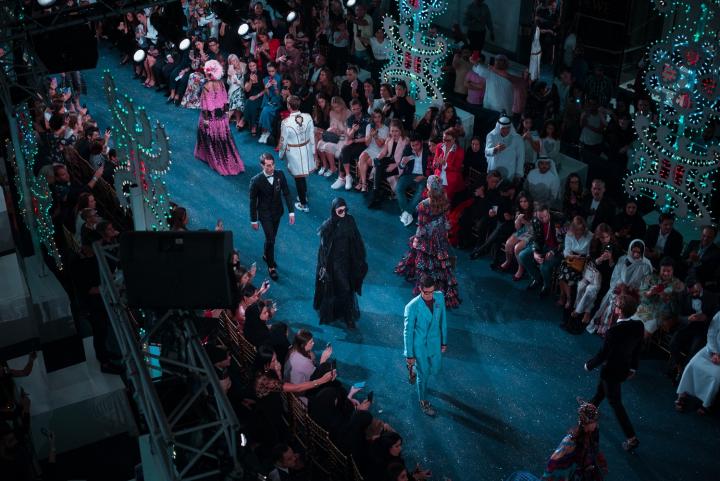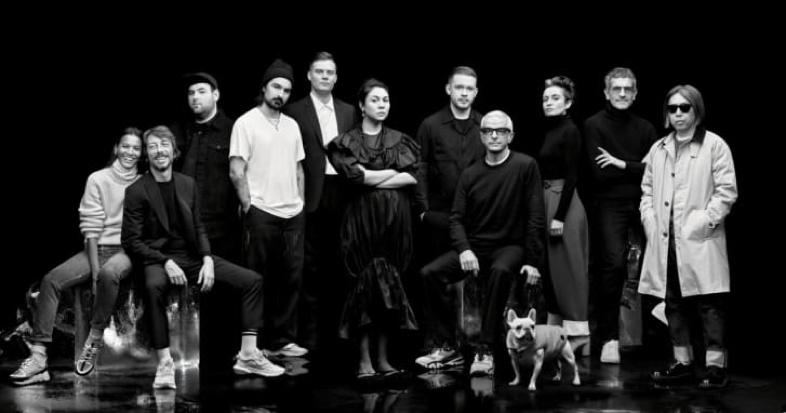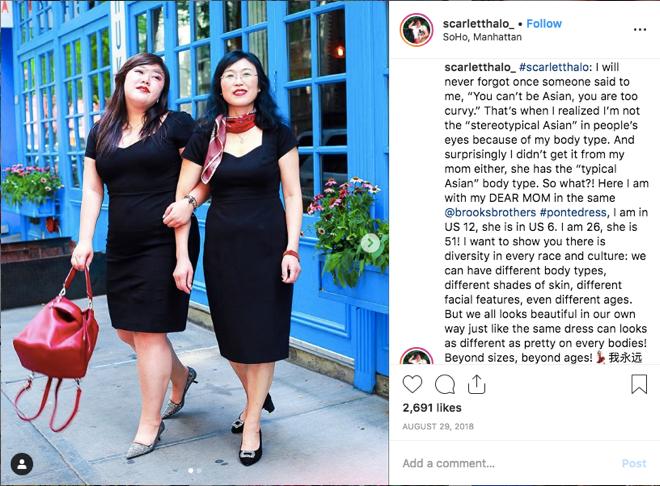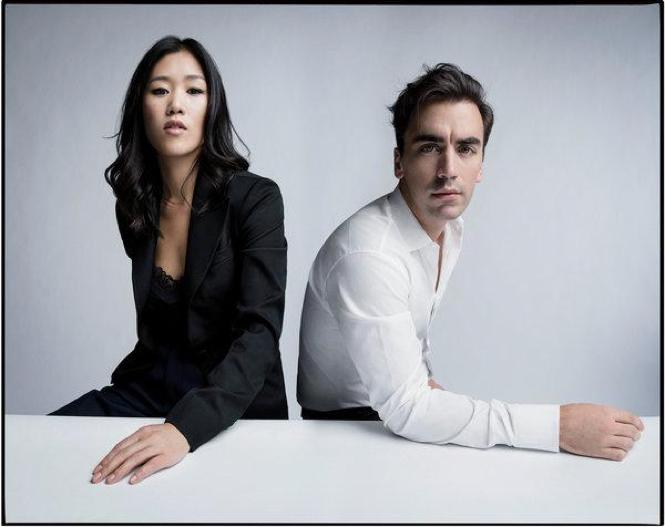

Discover proactive strategies for brand resilience in the fashion world. Sensitivity training and diversity hires respond to past faux pas, but what preemptive measures can brands implement in their creative process to navigate cultural pitfalls and evolve beyond missteps? Uncover insights on building resilience while staying true to brand messages, exploring the transformative steps brands can take to fortify their position in the ever-evolving landscape.
Discover proactive strategies for brand resilience in the fashion world. Sensitivity training and diversity hires respond to past faux pas, but what preemptive measures can brands implement in their creative process to navigate cultural pitfalls and evolve beyond missteps? Uncover insights on building resilience while staying true to brand messages, exploring the transformative steps brands can take to fortify their position in the ever-evolving landscape.
In a hyper-secretive industry marked by tough competition and singular creative directors elevated to demi-god status, it comes as no surprise when potential slip-ups go unchecked until it’s far too late. But what can be gained when luxury brands build collaboration and transparency into the process?
Moncler CEO Remo Ruffini recognized the power of collaborative processes when he assembled the Moncler Genius Project with intent to “acknowledge the singularity of the customers and the variety of their tastes, [while] exploring fragmentation as an asset”. Convening eight designers representing a multitude of different backgrounds and perspectives across the industry, Moncler radically restructured the business model and supply chain to reimagine a future of fashion rooted in a kaleidoscopic and collaborative creative process.

2019 Moncler’s Genius Creative team
It’s no stretch to wonder whether the recent Gucci stumble or Pradamalia controversy might have been avoided if they had a built-in braintrust with the caliber of Moncler’s Genius Project. Extraordinary companies build capacity internally for stakeholders to deliver on a brand promise. Appointing Theaster Gates & Ava DuVernay as co-chairs, Prada’s Diversity & Inclusion Advisory Council was recently assembled with the express purpose to “examine processes and advise on tactical and strategic approaches to inclusion”. Prada’s perspective posits that inclusive processes must be integrated across departments and hierarchies in order to unleash the collective power of the brand. Brand accountability lives not with one new diversity hire or one creative director – but rather requires a whole ecosystem approach to building inclusion and collaboration into a new fashion paradigm.
Every brand needs a check-in moment to ensure they are on-pitch, but doing so without a tuning fork would prove difficult. Influencers are the perfect proxy for gauging pitch because they shape our culture today and act as envoys for cultural codes. Consumers look to influencers for first impressions on nearly everything – what they eat, who they follow and how to dress. By engaging influencers in the creative process, luxury brands can ensure they are in tune with the ethos of their customers.
Brooks Brothers invited a change in approach when they enlisted the help of fashion influencer Scarlett Hao to launch a campaign specifically made for the China market. Taking what was perceived as a “very American brand” among Chinese consumers, Scarlett re-contextualized the classic LBD (little black dress) to appeal to a broader Asian woman clientele spanning ages 20-60, for all different sizes. Reflecting on the collaboration with Brooks Brothers, Scarlett recommends, “Don’t limit the influencer’s creativity—you’ll be surprised with insights they can bring”. As evidenced by the partnership between Scarlett Hao and Brooks Brothers, welcoming influencers to reinterpret the brand can lead to meaningful points of cultural relevance that would otherwise be missed – or even botched – without deep insight into cultural codes.

Scarlett Hao modeling Ponte Dress for Brooks Brothers (in EN)
As both Burberry & D&G pay the price of culturally remiss indiscretions, the untapped value of the influencer role as a preemptive sounding board becomes ever more apparent. Engaging influencers effectively will require a shift from transactional relationships to co-creative partnerships. To avoid cultural pitfalls, luxury labels can benefit from co-creation with influencers as an entry point to deepen cultural understanding of the markets they wish to grow in.
Redefining the bounds of elegance requires an infusion of fresh perspectives. In an industry that fears its own stagnancy, being the first to create new access points for voices that have been absent from a historically Euro-centric tradition may be the boldest path forward.
We see a glimpse of what could be possible through some of today’s boldest brands disrupting the status quo in favor of a more equitable and democratic creative process. Co-creative directors Laura Kim & Frederico are more than two years in to the process of shepherding Oscar de la Renta to the 21st century. Though underestimated at first, the match between Korean-born Kim and Dominican-raised Frederico has taken Oscar de la Renta to the next level, dressing the likes of Regina King and Lupita Nyongo for the 2019 Oscars. The design duo blends their collective youthful spirit into the legacy of its namesake founder: “We’ve kept some Oscarisms, but we’re making it all lighter and more relaxed. Ultimately, we’re after a joie de vivre that came through in Oscar’s clothes. We want to make him proud.”

Co-creative Directors Laura Kim & Fernando Garcia
Among other creative visionaries at the helm of carrying on a legacy brand, Virgil Abloh was appointed by Louis Vuitton to take up the mantle of Artistic Director for menswear. Abloh is equally interested in honoring the heritage of the brand as much as its future potential: “I’m coming in at a time to re-interpret or channel this brand into the modern era. And I’m very much following in the steps of someone who I admire and put a great deal of belief into. I was carrying on a tradition that I believed in.” As the first black man to assume the position, Abloh leads Louis Vuitton into the new wave of fashion where subcultures rule, while elevating the legacy that the brand originates from.
The LVMH Group broadens the boundaries of luxury once more among its brands with the highly anticipated launch of Rihanna’s luxury label. This will be the first new brand to be launched under the French fashion house since 1987. Just as we’ve seen the music & fashion icon lead the next generation of beauty and intimates with the promise of inclusion for all women across Fenty Beauty & Savage X, we can easily place our bets that Queen RiRi will redefine the rules of luxury fashion.
In our modern age, the next wave of visionary designers could appear in any part of the world. Rather than passively awaiting external forces that could impact the industry, brands that preemptively champion emerging creatives by representing diverse perspectives will not only expand their reach to untapped audiences, but also future-proof their legacy to thrive for a dynamic global market.
Amid a transformative moment in the fashion industry, building brand resilience is paramount. Embracing a courageous future, brands are challenged to honor history while forging new expressions of legacy. To navigate this journey, brands must leverage their networks—collaborative partners, influencers, and emerging talents. By uniting with others, brands can deliver on their promises, moving beyond tensions to push fashion forward in a creative and resilient alliance. Explore the strategies shaping brand resilience in the ever-evolving landscape of the fashion industry.
A Labbrand Group Company © 2005-2024 Labbrand All rights reserved
沪ICP备17001253号-3* Will be used in accordance with our Privacy Policy
To improve your experience, we use cookies to provide social media features, offer you content that targets your particular interests, and analyse the performance of our advertising campaigns. By clicking on “Accept” you consent to all cookies. You also have the option to click “Reject” to limit the use of certain types of cookies. Please be aware that rejecting cookies may affect your website browsing experience and limit the use of some personalised features.